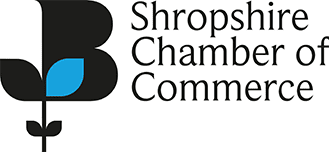The increase in time-consuming paperwork since the UK’s exit from the European Union is posing problems for some Shropshire exporters, it has been revealed.
Netherton Foundry, the family-run business which sells traditional cookware, was among the companies featured in the first major business post-Brexit survey by the British Chambers of Commerce.
Nationally, the survey found that half of exporters were facing difficulties in adapting to the changes in the trade of goods following the ratification of the UK-EU Trade and Cooperation Agreement.
Netherton Foundry, a Shropshire Chamber member which is based in Highley, said: “Increased documentation means that we need to use higher paid staff to complete shipping details.”
The company says it is causing loss of orders due to new duty/customs arrangements; time (and therefore money) spent resolving European customers enquiries; cost of implementing new shipping arrangements and delivery charges on our website.
“A small business like ours does not have the resources to deal with all the extra work,” the foundry says.
The survey was carried out in the second half of January, with the majority of responses coming from small and medium sized businesses.
Ruth Ross, Shropshire Chamber’s director of business, said: “There are many other companies, just like Netherton Foundry, who will not be finding it easy to adapt to the new rules.
“We have seen reports in recent days from other Shropshire companies suggesting they are finding it difficult to continue trading with the EU at the same level as they were doing before Brexit. Clearly this is unacceptable.
“When asked about the specific difficulties businesses were facing, commonly cited concerns from the survey included increased administration, costs, delays, and confusion about what rules to follow.
“We are calling on the Government to work with the Chamber network to identify the most significant blockages for businesses, and act swiftly to publish plans for resolving them.”
One of the suggestions from the BCC, which is backed by the Shropshire Chamber team, is the creation of tax credits allowing firms to offset their spending on adaptation to the new UK-EU requirements against their tax bills.
The BCC also wants the Government to look at key areas of the new relationship and work with EU partners on easements to minimise ‘unhelpful burdens’, including on aspects of Rules of Origin and VAT.
BCC Director General Adam Marshall said: “Trading businesses – and the UK’s chances at a strong economic recovery – are being hit hard by changes at the border.
“The late agreement of a UK-EU trade deal left businesses in the dark on the detail right until the last minute, so it’s unsurprising to see that so many businesses are now experiencing practical difficulties on the ground as the new arrangements go live.
“For some firms these concerns are existential, and go well beyond mere ‘teething problems’. It should not be the case that companies simply have to give up on selling their goods and services into the EU.
“Ministers must do everything they can to fix the problems that are within the UK’s own control, and increase their outreach to EU counterparts to solve the knotty issues that are stifling trade in both directions.”












Latest News